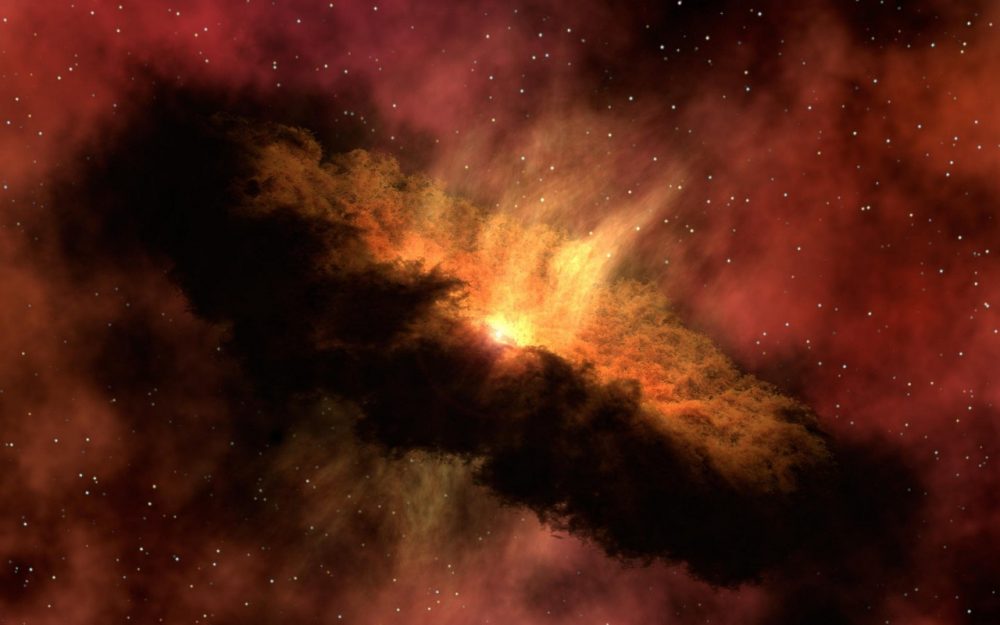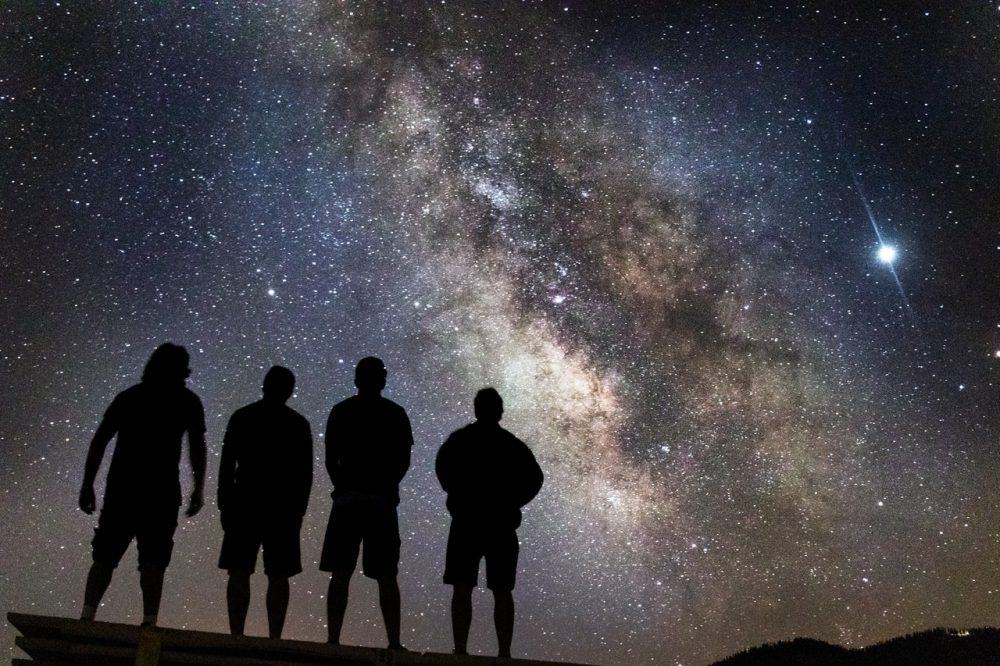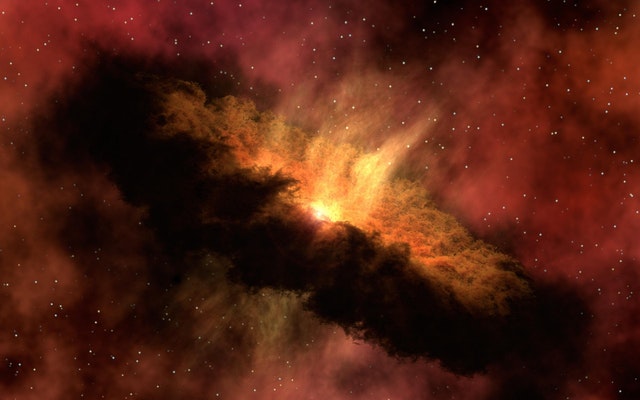Warning: strpos() expects parameter 1 to be string, array given in /home/site/wwwroot/wp-content/themes/twentynineteen-child/functions.php on line 163
The origin of the universe has often been considered one of the fundamental topics of the humanities. However, with respect to this question, specific branches such as religion and science have been commissioned. It is not wrong to say that all of them are cosmogonies, for cosmogony is the science or system that studies the origin and evolution of the universe.

Religious discourse and scientific discourse are often based on different modes of argumentation and methods that make their compatibility difficult. However, some theorists have claimed that the limit of scientific explanation can only be crossed by religion. Therefore, the two would not be incompatible but different levels of the same discourse.
For example, the current Big Bang theory presupposes the origin of the universe from a great exposition arising from nothingness or a primordial void. For many scientists such a presupposition is inconceivable and some assume the discourse of creation and faith because, as Aristotle argued, being cannot be conceived from non-being. Such a thing would be to fall into a contradiction. Whenever something exists it must be conceived by someone. For this reason, if the origin and evolution of the universe came from a great explosion, such a hypothesis is not necessarily incompatible with the existence of God.
Three theories about the origin of the universe
Ancient Age
A mythological explanation of the origin of the universe prevailed. Although the tradition in antiquity was essentially oral, there is the writing of Hesiod where the cosmogony is compiled. In a way, the hegemony of this conception changed with the so-called leap from myth to logos. Thus, the origin of the universe was conceived by Plato by an ordering intelligence called Demiurge. In the case of Aristotle, the universe could not have an origin because it is eternal, although the first cause of motion is the first immobile motor. In any case, for antiquity the universe responded to a geocentric model. This means that the whole universe oscillates around the Earth.
Middle Ages
Explanations and arguments of a theological nature are found, linking what the ancients called the Demiurge or first immobile motor with the nature of God. The universe will continue to be geocentric, but it will not be infinite, as Aristotle thought, because it must have a beginning (creation) and an end (apocalypse). This stage is also called theocentric because God is the efficient and final cause of the universe. The Holy Scriptures give an account of the origin of the universe from the creation ex nihilo (from nothing) of God. Theology and the Church are intermediaries between human beings and God, whose revealed truth about the origin of the universe will be explained through Genesis.
Modern Age
A change appears in the conception of the origin of the universe and its representation, which will be heliocentric. Although the theological argument is still predominant, the authority and credibility of the ancients will diminish as a result of certain discoveries: errors in the calculation of the motion of celestial bodies; that they are not perfectly spherical bodies but have irregularities; it will reveal doubts about the studies of Aristotle and Ptolemy on the origin and nature of the universe. This stage goes in consonance with the so-called scientific revolution, where authors like Copernicus, Galileo, Kepler or Newton will give account of a universe that is opposed to the observations and calculations of the ancients.
Geocentrism and heliocentrism
Geocentrism was the predominant system during the Ancient and Middle Ages that placed the Earth as the immobile center of the universe. The predominant conception was that the Earth was surrounded by eight spheres traced by various celestial bodies as first described by Plato. In fact, it is possible to affirm that all the descriptions about the universe will take as a model the Platonic explanation, since it is a description where the observation converges with a mythological explanation.
The geocentric model advocated by Plato states that the Earth remains motionless at the center of the universe. It is surrounded by eight concentric spheres carrying the Sun, the Moon, the five planets known so far (Saturn, Mercury, Jupiter, Mars and Venus) and the fixed stars, which are located in the last sphere and always maintain an unalterable distance between them. This conception of the universe will hardly be altered throughout the Middle Ages.
Therefore, heliocentrism will be a model that will appear for the first time in the Ancient Age through Aristarchus of Samos. However, this model was not successful because the geocentric theories of Plato and Aristotle were considered more accurate. Heliocentrism will gain importance through the theories of Copernicus, Galileo, Kepler and Newton, although when they were proposed the prevailing model was still geocentrism.

Biblical doctrine of creation
In contrast to the doctrine of the origin of movement according to Aristotle by means of the first immobile motor, St. Thomas Aquinas will offer an important revision of the concept of creation in which he highlights a relevant fact: the importance of the category of relationship between the human being and his creator, instead of other attributes such as efficient cause.
The doctrine of creation is not incompatible with scientific discourse, since both would correspond to different levels where scientific discourse would find a limit. This is because its framework is based on demonstrable evidence and, clearly, it can presuppose, theorize and speculate about the origin of the universe by means of conjectures, but it cannot demonstrate in an exhaustive manner.
In any case, it is possible to underline some features or characteristics that differentiate the theories about the origin of the universe from a religious and a scientific point of view. The Judeo-Christian tradition defends a conception of the origin of the universe through the first book of the Bible, Genesis, which narrates the creation, by the hand of God, of the world, plants, animals and human beings. This theory has been called creationism. In other words, God created all things and then, in his image and likeness, the first parents, Adam and Eve, from this first couple descended all humanity. As a consequence of this conception, aspects such as, for example, that all species of living beings were created once and for all and, therefore, that they were immutable, are inferred. At the same time, it affirms the separation between the human being and the rest of living beings.
Definition of theodicy and theology
Theodicy
It is considered the branch of traditional metaphysics that deals with the demonstration of the existence of God, as well as his nature and his justification as creator and responsible for the world. Although some philosophers have called theodicy natural theology, it differs from theodicy basically in the rejection of the arguments of faith. Another essential theme of theodicy is the study of evil in the world and how to reconcile pain, suffering and injustice with the infinite goodness and omnipotence of God. As Sánchez Meca has pointed out, many philosophers, such as St. Augustine and Leibniz, have argued that evil is a consequence of human freedom.
Theology
It refers to the study of the myths, dogmas and rites of a given religion, generally based on its sacred texts or revelations and guided by faith. This aspect is essential to distinguish it from theodicy, which, although it deals with the nature of God and the demonstration of his existence, does not accept the discourse of faith, but only that invoked by means of reason. In Christian theology, St. Paul is considered the first who tried to extract a systematic doctrine from faith. However, due to the length and depth of his work Summa Theologica, many consider St. Thomas Aquinas as the systematic theologian for excellence.
Philosophical theories

Social developments in different branches and areas are susceptible to a deeper analysis, from an anthropological point of view, than that developed by other sciences. In these exceptional philosophical programs, available at TECH Technological University, such as the Master’s Degree in Ethics, Political Philosophy and Anthropology and the Master’s Degree in History of Philosophy and Historiography, you will discover how to develop a systematic and complete analysis of society.
On the other hand, in the Master’s Degree in Philosophy and Theory of Society you will find, throughout a process of personal and professional growth, the expressions inherent to the human being. With the most interesting approaches and the complete baggage of knowledge that the contemporary philosopher needs to develop his own thinking, or to expose, debate or explain the existing paradigms.
